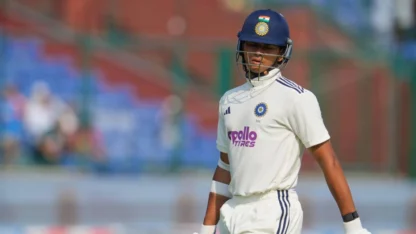The sudden omission of Abha Khatua, India’s national record holder in women’s shot put, from the 2024 Paris Olympics list has raised questions and sparked controversy. While the official reason remains unclear, whispers within athletics circles point towards a potential clash with World Athletics’ (WA) regulations on Differences of Sex Development (DSD).
Abha Khatua missing from Paris Olympics final cut
Abha Khatua, who established a national record throw of 18.41m at the Federation Cup in May, was initially considered qualified for the Olympics based on world rankings.
However, the Indian Olympic Association’s (IOA) Wednesday confirmation of her absence from the Paris Olympics‘ final list has left many scratching their heads.
Unconfirmed DSD concerns
Sources close to the situation suggested to Times of India that World Athletics may have blocked Khatua’s participation due to non-compliance with DSD regulations, which govern female classification in athletic competitions.
“It is more or less clear that she has not failed a dope test. The most likely reason for Khatua’s exit just days before the start of the Olympic Games could be because she failed to meet WA’s DSD regulation,” sources said.
While the Athletics Federation of India (AFI) hasn’t officially commented, the news reportedly came as a shock, prompting Khatua’s recall from a training camp in Poland.
Precedents and Questions
This incident, if confirmed as a DSD-related exclusion, would create a historic first. Previous cases like South African runner Caster Semenya’s ongoing battle against DSD regulations and Indian sprinter Dutee Chand’s successful challenge against hyperandrogenism rules in 2014 were primarily focused on middle-distance track events, and they were also the past relics of pre-DSD ban era which completely came into effect in March 2023.
Experts speculate that Khatua’s blood sample might have been collected during the Asian Championships in Bangkok last year by the Athletics Integrity Unit (AIU). Furthermore, recent sample collections by the AIU during the Inter-State meet in Panchkula have also come to light.
How DSD rule affect athletes?
New DSD regulations which got implemented last year target athletes with naturally high testosterone, forcing them to undergo testosterone-lowering medication for two years to be eligible for competition.
This change in rule effectively excluded DSD athletes from both the 2023 World Championships and the 2024 Paris Olympics.
Uncertainties and need for answers
The lack of official confirmation regarding the reasons for Khatua’s exclusion leaves a cloud of uncertainty. If DSD regulations are indeed the culprit, this would mark a new chapter in the complex world of DSD regulations and its impact on athletes across various disciplines. Transparency and clear communication from the AFI and WA are crucial to understand the situation and ensure fair treatment of athletes.
Editor's Pick
 Cricket
Yashasvi Jaiswal could miss few Vijay Hazare Trophy matches, lost 2 kilos due to food poisoning
Cricket
Yashasvi Jaiswal could miss few Vijay Hazare Trophy matches, lost 2 kilos due to food poisoning
































































